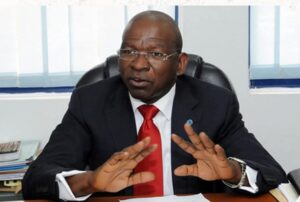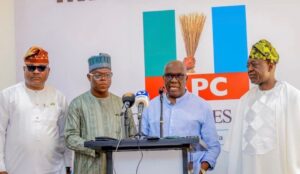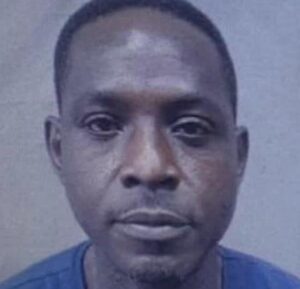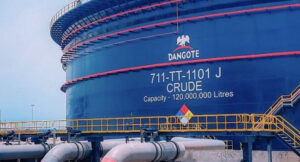“I beg the Nigerian President to have pity on us” – Benin Republic cries Out, says things are difficult because of Buhari’s Regime
Huge quantities of frozen chickens, rice, fabric and cars arrive at the port of Cotonou, Benin’s economic capital, where they are taxed locally before being routed — often illegally — to Nigeria.
Benin has few functioning petrol stations, and its fuel is far more expensive than in Nigeria, where it is subsidised by the state. A common sight is smuggled Nigerian petrol, sold by the side of the road in jerrycans.
Beyond contraband, though, trade with Nigeria is crucial for Benin and Niger.
Ranking among the world’s poorest countries, they find themselves as David opposite the Nigerian Goliath — a market of 190 million and Africa’s biggest economy.
In Benin, business people in some parts of the economy are panicking, and unfounded rumours that Nigeria will even go so far as to cut off its electricity supply are spreading in local newspapers.
“Buhari and his country want to put an end to us,” said Barthelemy Agon, a pineapple producer. He like many others have been hard-hit by fruits and vegetables no longer being exported to their big neighbour.
As for taxi and truck drivers, it’s barely worth the effort to hit the road since a litre of imported contraband fuel has risen by about one euro ($1.10) since the frontier was closed.
“We are suffering seriously from this situation — without petrol we can’t do anything,” said Aristide Samson Assogba, a motorcycle taxi driver.
Sebastien Deguenonvo in Cotonou’s Casse-Auto district said sales of his low-quality diesel had slumped from at least 30 26-litre (six-gallon) cans per day to just 10.
“I beg the Nigerian president to have pity on us,” he said.
But if his stoney reputation is anything to go by, Buhari, an ex-general whose first spell as Nigeria’s leader, in the 1980s, came after a coup is unlikely to be merciful.
“President Buhari should be a little bit afraid of God,” said Henry Assogba from the National Association of Petrol Sellers. “The big one cannot live without the little one”












